Many opinions at the seminar highlighted the value of the cultural industry and the difficulties that need to be resolved, helping this field maximize its potential for development.
The seminar "Developing cultural industry: What are the pillars?" was organized by the Lao Dong Newspaper on the morning of December 5. How to develop Vietnam's cultural industry strongly in the coming time was the issue that delegates focused on dissecting and discussing.
Breakthrough development from cultural industry
At the end of May 2024, Nguoi Lao Dong Newspaper organized a seminar on "Solutions to promote the development of Vietnam's cultural industry by 2030". The seminar was attended by representatives of the Ministry of Culture, Sports and Tourism, the Department of Culture, Sports and Tourism of Ho Chi Minh City, departments, branches, associations, and many businesses and artists operating in the fields of culture and entertainment.
At this discussion, Nguoi Lao Dong Newspaper recorded a lot of new information about the current status of Vietnam's cultural industry; the bottlenecks, difficulties and advantages. The guests proposed many practical and feasible solutions, which were accepted by state management agencies.
Realizing that this is an issue that still has much room for further discussion, especially after the Prime Minister signed and issued Directive 30/CT-TTg dated August 29, 2024 on the development of Vietnam's cultural industries, Nguoi Lao Dong Newspaper decided to organize the second discussion with the theme: "Developing cultural industries: What are the pillars?".
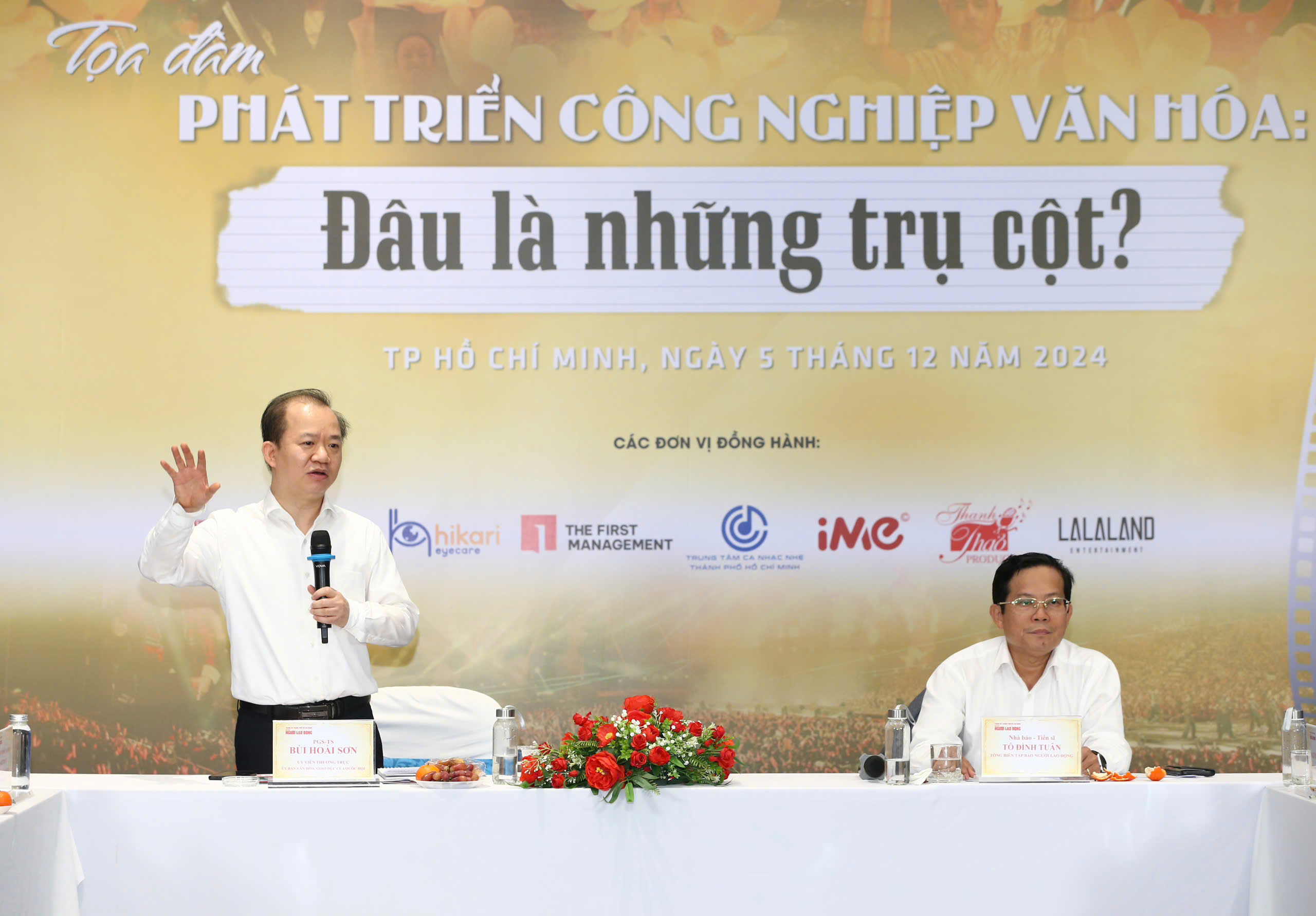
Associate Professor, Dr. Bui Hoai Son - Standing Member of the National Assembly's Committee on Culture and Education (left) and Dr. - journalist To Dinh Tuan, Editor-in-Chief of Nguoi Lao Dong Newspaper, moderated the discussion content of the seminar. (Photo: HOANG TRIEU)
Associate Professor, Dr. Bui Hoai Son - Standing Member of the National Assembly's Committee on Culture and Education - who has participated in designing, drafting, and advising on many policies on cultural industries - acknowledged: Cultural industries help create breakthroughs in the country's development. However, for a long time, we have not paid enough attention to culture; we believe that this is a "flag and trumpet" field, not creating profits, purely related to spiritual and moral life; not directly creating wealth and material for society.
Mr. Bui Hoai Son believes that cultural products are essentially goods, and goods must move according to the market, pay attention to the public, develop brands, and follow the rules of the market economy. The cultural sector needs to focus more on developing the cultural industry, not turning it into moral teachings but aiming at the public, aiming to create profits, using creative talents, combining cultural resources and business skills to create cultural services.
Dr. To Dinh Tuan, Editor-in-Chief of Nguoi Lao Dong Newspaper, cited an example of the Korean music group BTS. This music group's fame has gone beyond the borders of Korea, even beyond Asia, to become famous around the world. Many audiences, including young Vietnamese people, have collected photos, bought albums, attended concerts... of BTS. This music group has brought 5 billion USD to the Korean economy every year.
"Our population is larger than Korea's. The demand for cultural and entertainment enjoyment, including music, of Vietnamese people is also very large. The capacity to organize events in our country is abundant... We can surpass with the cultural industry, so why not do it? The cultural industry is a multi-benefit economy, not only bringing material benefits but also many other things" - Mr. To Dinh Tuan emphasized.
What are the pillars?
Developing the cultural industry is not a short-term story but a long-term journey. Currently, the cultural industry still faces many difficulties and bottlenecks that need to be resolved.
People's Artist Trinh Kim Chi, Vice President of the Ho Chi Minh City Theater Association, said that the association and the Department of Culture and Sports are trying to develop the city's theater sector. According to her, the facilities of the Ho Chi Minh City theater sector are not modern, but the artists are enthusiastic about their profession. She hopes that the Ho Chi Minh City theater sector will receive support not only from the government but also from investors in a mutually beneficial manner.
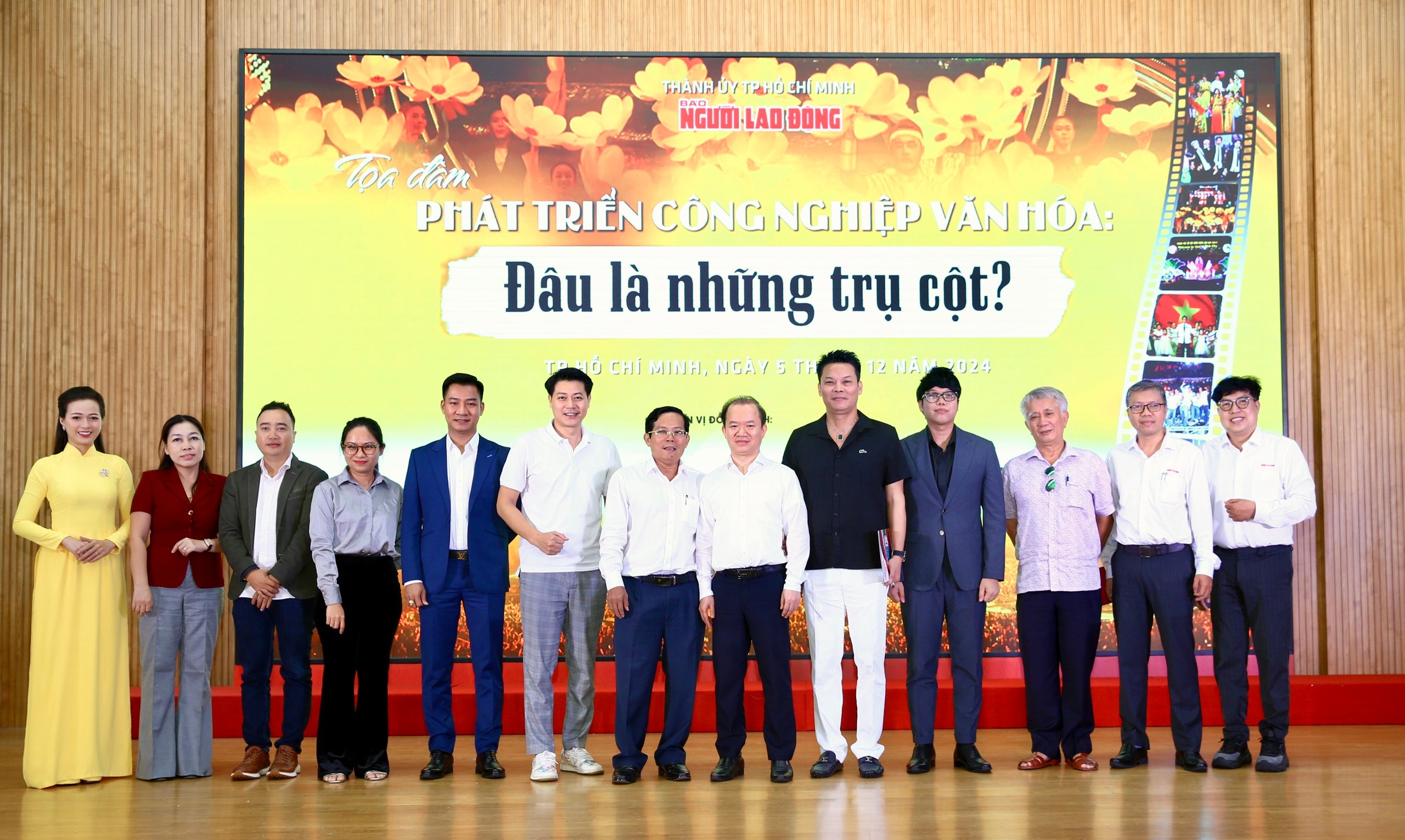
Delegates take souvenir photos after the seminar. (Photo: HOANG TRIEU)
Director Nguyen Quang Dung believes that the pillars of cultural industry development must be people and individuals' perceptions of the importance of the profession. "To me, it is very good for the cultural industry to earn money to live. Because when culture develops, it will "multiply" other service industries to earn money," he said.
Director Nguyen Quang Dung said Thailand welcomes film crews with tax exemptions and tax refunds. Therefore, many films set in Vietnam choose Thailand to make. When film crews come to Thailand, they use services, hire workers, etc., helping the country learn and get paid. He hopes that Ho Chi Minh City will allow many cultural and artistic activists from all over the world to come and work so that local staff, especially young people, can learn.
Director Le Quy Duong, Chairman of the Festival and International Cooperation Committee - World Theatre Association, believes that the first pillar that needs to be discussed is the issue of mechanism. "For many years, we have developed in the direction of cultural movements instead of cultural life. This is a mechanism that is not suitable for the current cultural industry. The true cultural life of a cultural industrial society is a fair mechanism," he emphasized.
According to director Le Quy Duong, we have not provided the right funding for culture, which does not bring a boost to this industry. Ho Chi Minh City still has a lot of room; many indigenous cultures need to be promoted. He cited Australia's approach, that all programs of this country or each state are to open up fair opportunities for all units and individuals operating in the field of culture and arts.
Become a "lighthouse"
Ms. Nguyen Thi Ngoc Hang, Deputy Head of the Art Department - Ho Chi Minh City Department of Culture and Sports, commented that the opinions of the delegates at the discussion were concerns of those working in culture. The Ho Chi Minh City Department of Culture and Sports also had projects and programs to solve problems related to facilities, funding, licenses, etc.
Ho Chi Minh City has a lot of potential to develop the cultural industry. The Department of Culture and Sports is also one of the advisory agencies for the Ho Chi Minh City People's Committee. Ho Chi Minh City is making efforts to join the UNESCO Creative Cities Network in the field of cinema.
Associate Professor, Dr. Bui Hoai Son proposed a number of solutions to the remaining problems, shortcomings, and limitations in the development of the cultural industry. Accordingly, paying attention to creative talents, perfecting the education system, especially art education to develop the cultural industry in Vietnam; building a unique brand for each enterprise and locality; paying attention to new technology, exploiting the value of technology to improve the quality of cultural products; investing in the fields of education, communication... to create widespread interest in the cultural industry...
Mr. Bui Hoai Son expressed his hope that the cultural industry will become a "lighthouse" leading other industries in Ho Chi Minh City to develop rapidly.
Mr. NGUYEN MINH HAI, Head of Propaganda - Press - Publishing Department, Propaganda Department of Ho Chi Minh City Party Committee:
Promoting the role of the press
I believe that the press is a pillar for the development of the cultural industry. The press is both a part of the creative chain and a channel for transmitting multi-dimensional impacts in the creative activities of the cultural industry.
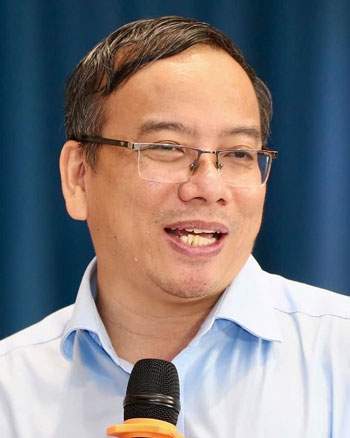
The press plays a particularly important role in orienting, promoting, honoring, disseminating, and connecting creative subjects with the public. The press also plays a role in reflecting the good and bad aspects of the city's overall goal of cultural development.
Businesses also need to have stronger and deeper connections with the press, in order to provide the public with comprehensive information about cultural products. For the cultural industry to develop, there needs to be a strong change in awareness, thinking and action in each specific cultural field.
K.Ngan recorded
Nguoi Lao Dong Newspaper would like to thank the following organizations and individuals for their support of the program: FUTA Bus Lines; Saigon Eye Center Joint Stock Company - HIKARI; The First Management Company Limited; Ho Chi Minh City Light Music Center; IME Music Company Limited; Thanh Thao Production; Dr. Do Tien; LALALAND Company.
Source: https://nld.com.vn/toa-dam-phat-trien-cong-nghiep-van-hoa-dau-la-nhung-tru-cot-dung-de-lo-thoi-co-196241205210106914.htm


![[Photo] A brief moment of rest for the rescue force of the Vietnam People's Army](https://vstatic.vietnam.vn/vietnam/resource/IMAGE/2025/4/3/a2c91fa05dc04293a4b64cfd27ed4dbe)
![[Photo] Prime Minister Pham Minh Chinh chairs the first meeting of the Steering Committee on Regional and International Financial Centers](https://vstatic.vietnam.vn/vietnam/resource/IMAGE/2025/4/3/47dc687989d4479d95a1dce4466edd32)
![[Photo] Prime Minister Pham Minh Chinh chairs meeting after US announces reciprocal tariffs](https://vstatic.vietnam.vn/vietnam/resource/IMAGE/2025/4/3/ee90a2786c0a45d7868de039cef4a712)
![[Photo] General Secretary To Lam receives Japanese Ambassador to Vietnam Ito Naoki](https://vstatic.vietnam.vn/vietnam/resource/IMAGE/2025/4/3/3a5d233bc09d4928ac9bfed97674be98)

![[Photo] Ho Chi Minh City speeds up sidewalk repair work before April 30 holiday](https://vstatic.vietnam.vn/vietnam/resource/IMAGE/2025/4/3/17f78833a36f4ba5a9bae215703da710)
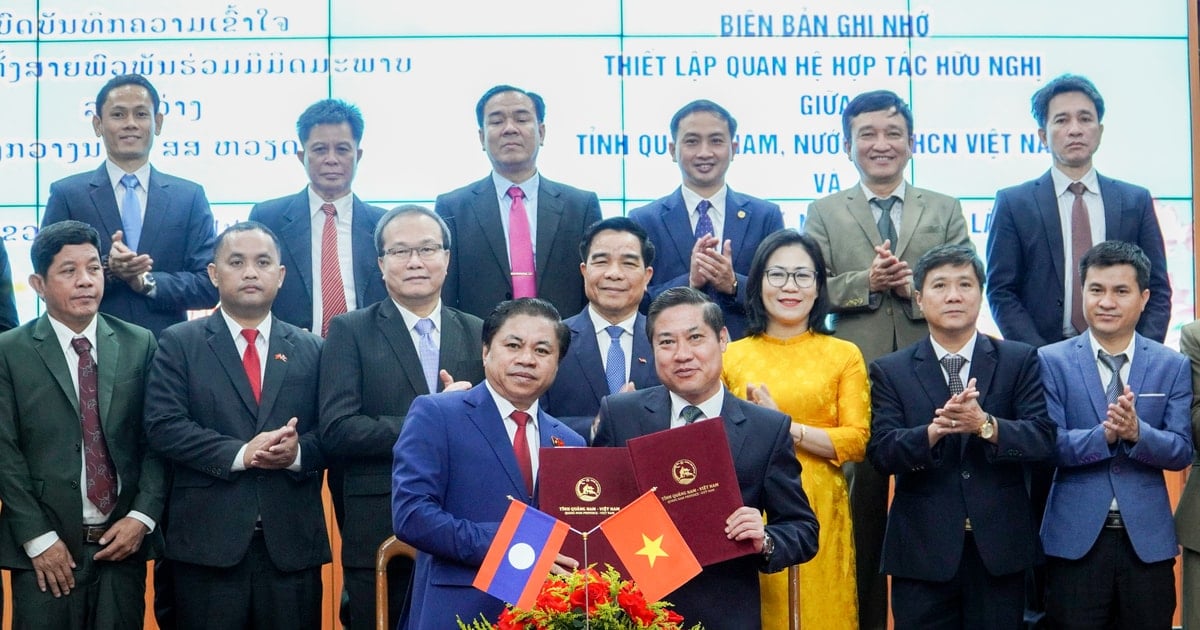

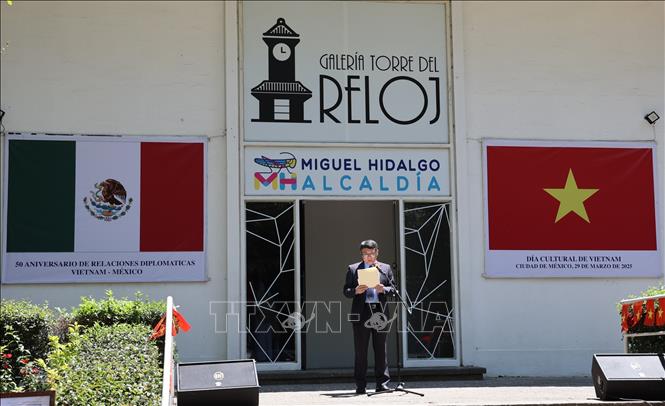

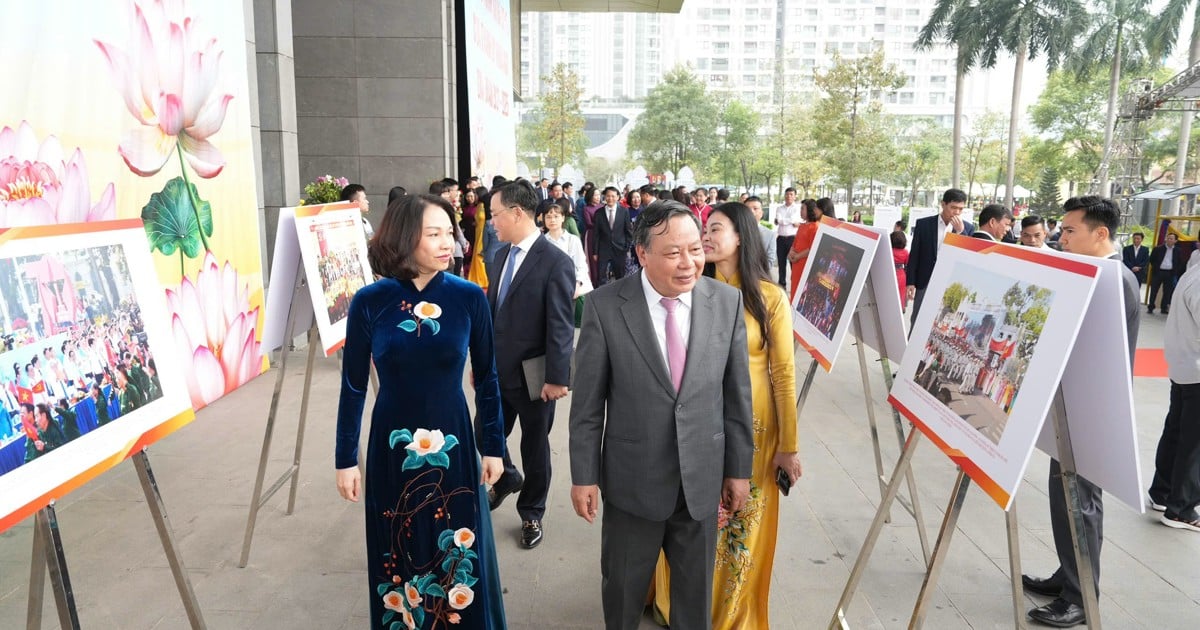


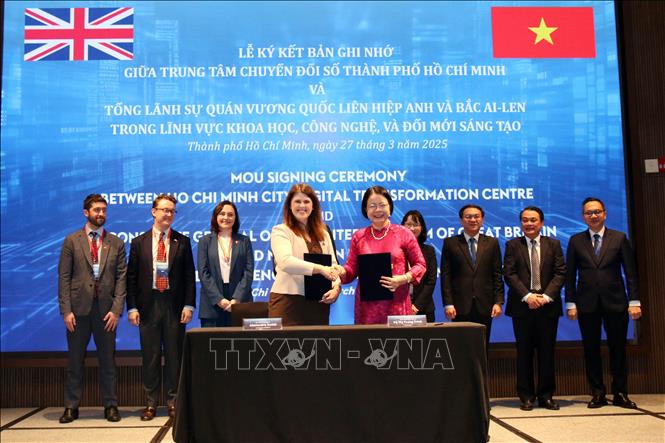
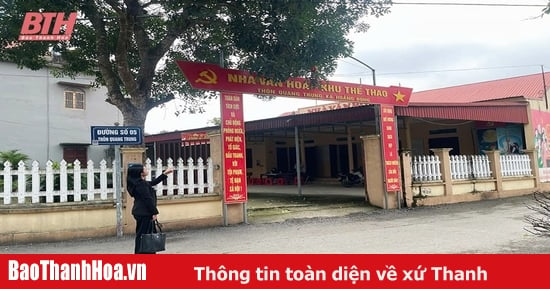
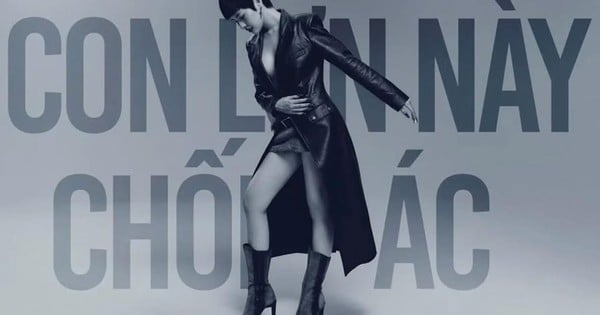
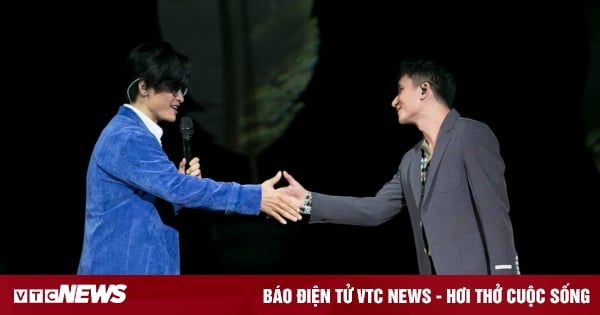

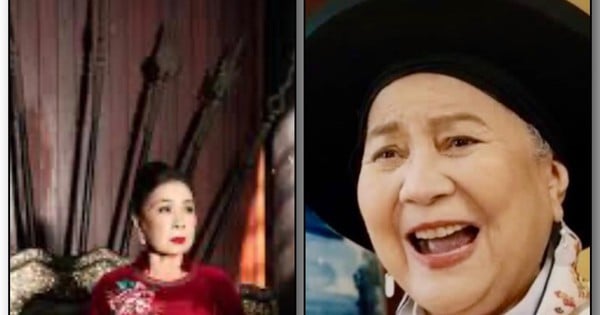

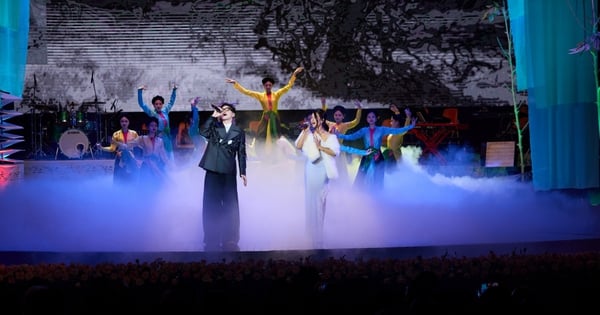





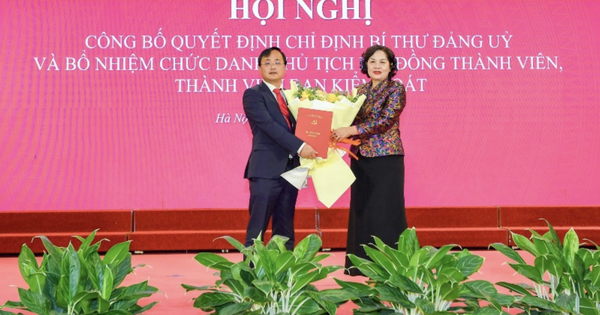
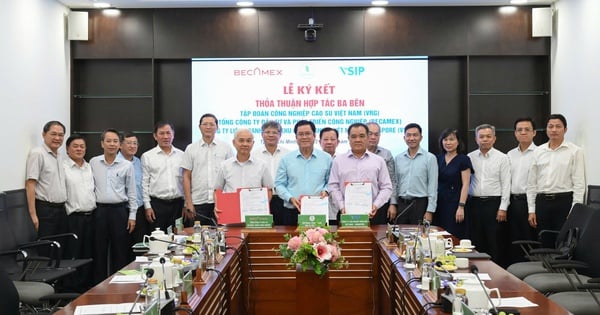


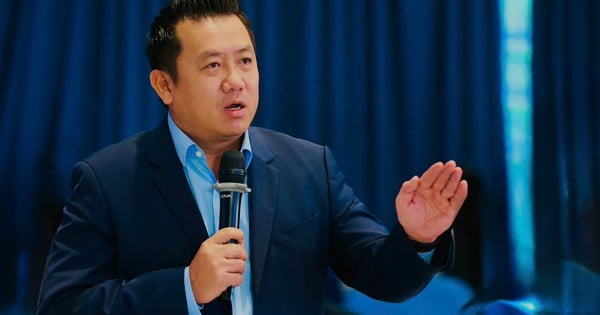

































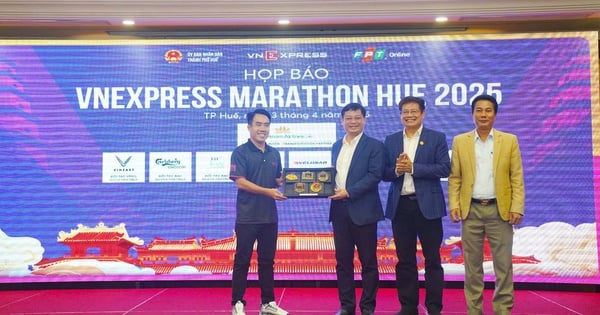








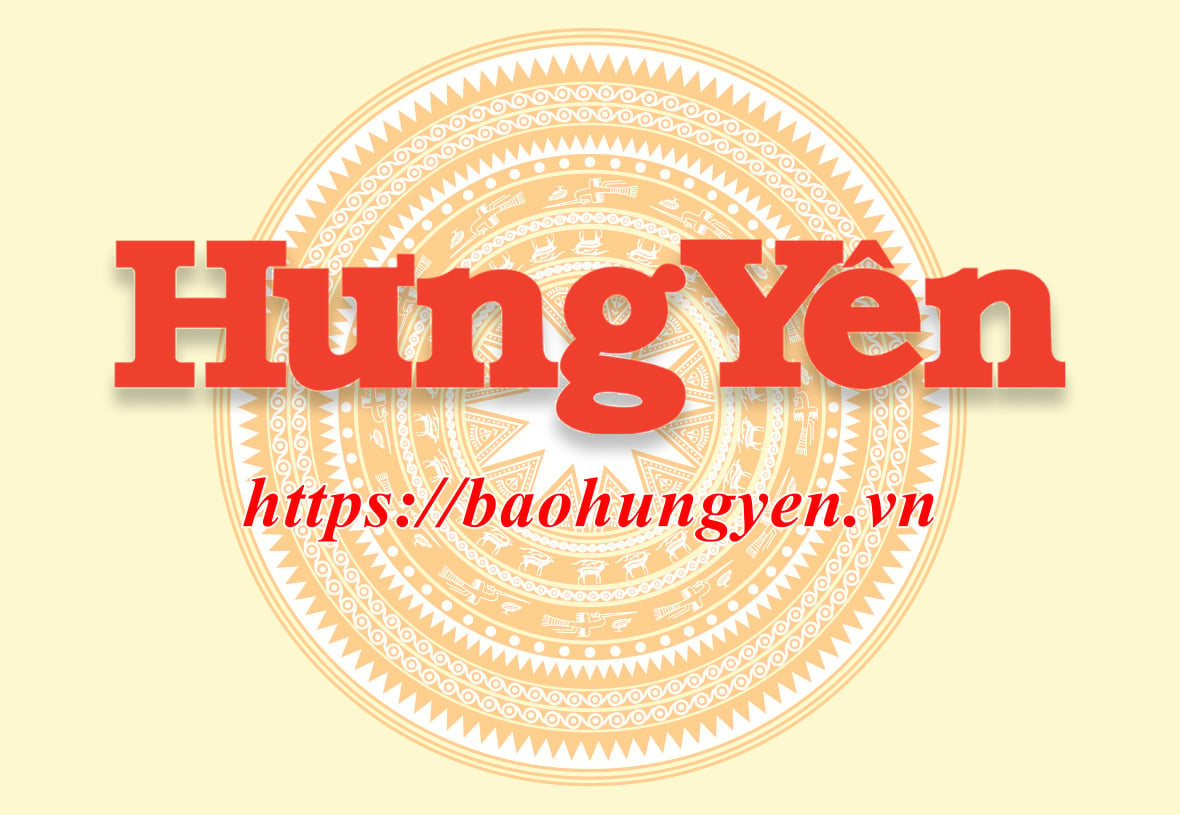

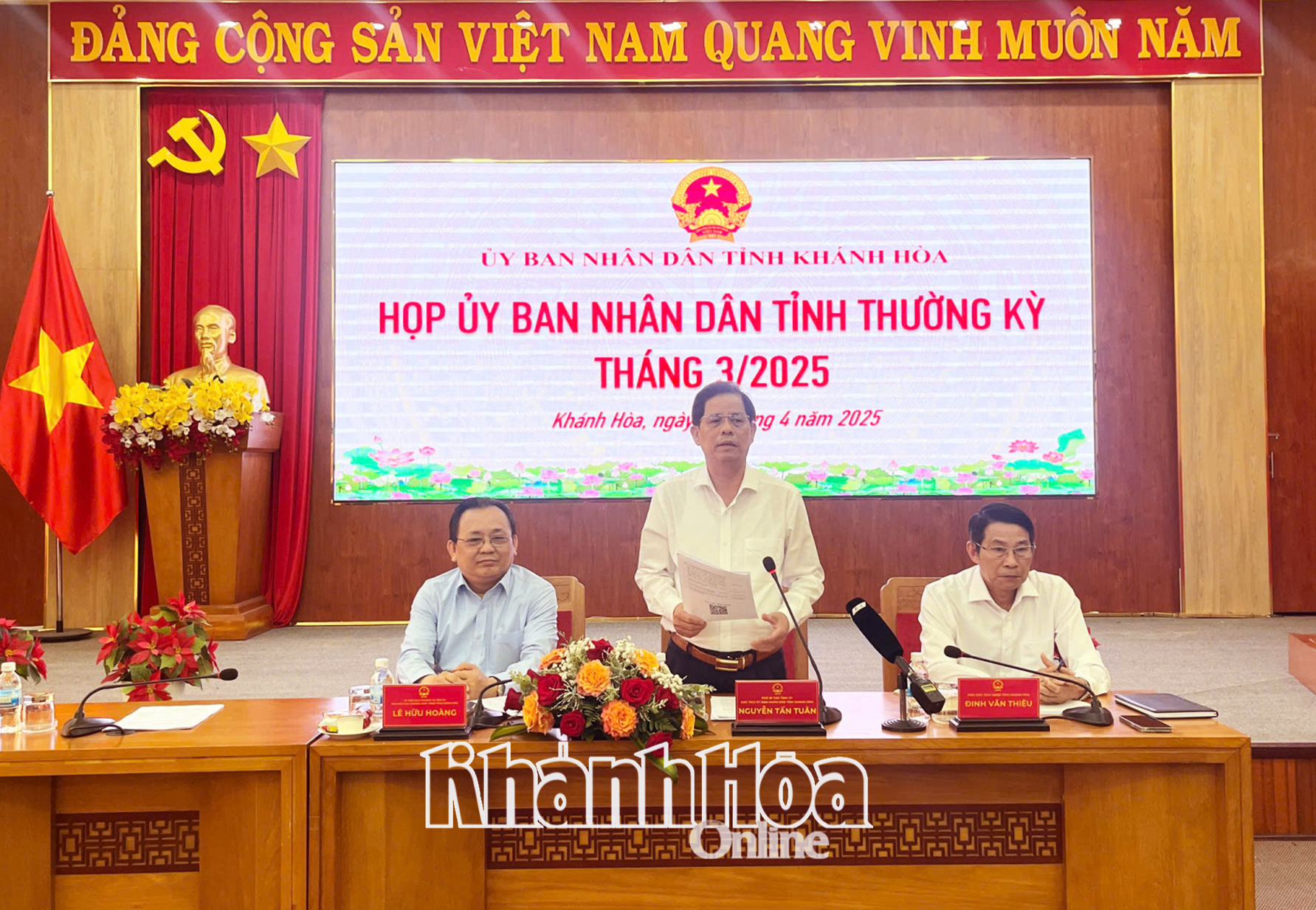
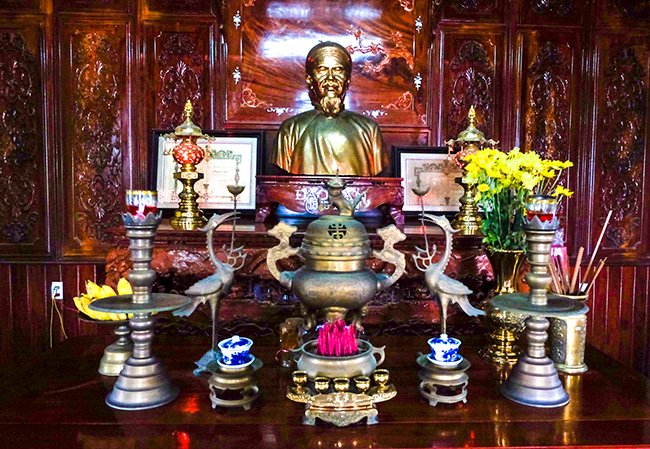
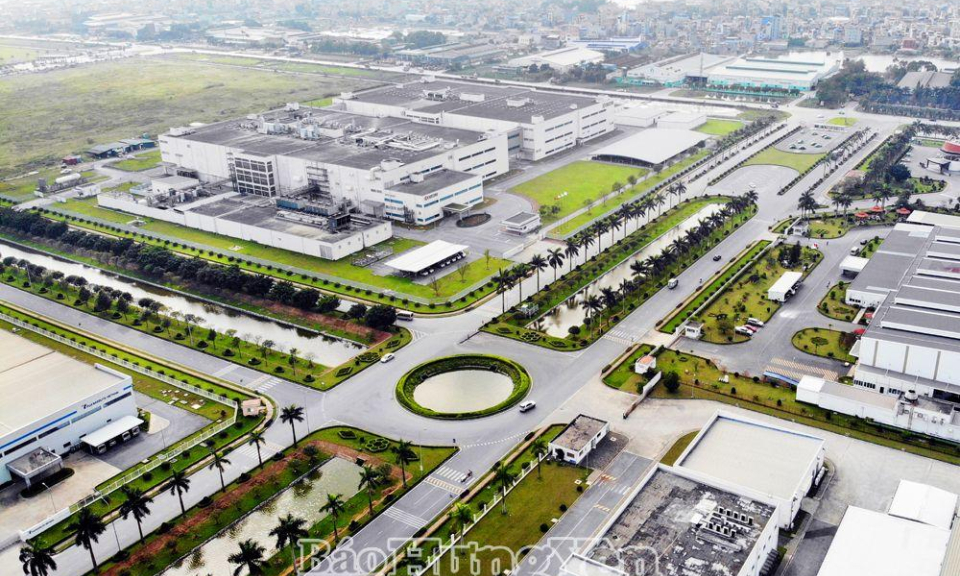
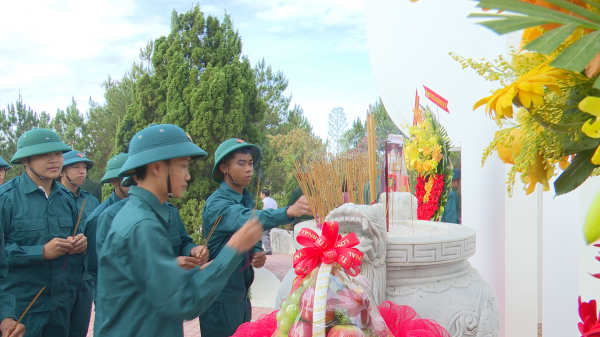












Comment (0)